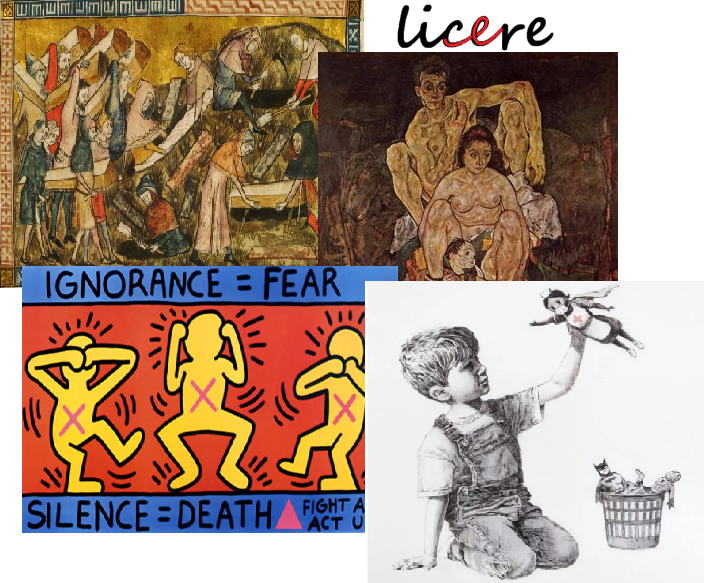Aplicativos para Smartphones que Possibilitam o Lazer em Tempos de Lockdown
Entre a Socialização, o Entretenimento e as Práticas Corporais
DOI:
https://doi.org/10.35699/2447-6218.2020.25449Palavras-chave:
Atividades de Lazer, Smartphones, Isolamento SocialResumo
Este artigo objetivou identificar e caracterizar os aplicativos para smartphones que possibilitam o lazer em tempos de isolamento social. Os dados analisados foram os 100 aplicativos mais baixados nos sistemas IOS e Android que possibilitam o lazer. A pesquisa se caracterizou como qualitativa com o uso da técnica de Análise Categorial. Identificou-se uma diversificação das possibilidades de lazer por meio dos smartphones, possibilitando socialização, entretenimento e práticas corporais. Todos esses aplicativos, no contexto pandêmico e permeado por lockdowns, auxiliam no isolamento social dos indivíduos e oferecem possibilidades de lazer.
Referências
BLOCK, P. et al. Social network-based distancing strategies to flatten the COVID-19 curve in a post-lockdown world. Nature Human Behaviour, v. 4, n. 6, p. 588–596, 2020. Disponível em: http://doi.org/10.1038/s41562-020-0898-6. Acesso em: 9 ago. 2020.
CAMARGO, L. O. de L. Educação para o lazer. São Paulo: Moderna, 1998.
CHOU, H. T. G.; EDGE, N. “They are happier and having better lives than I am”: The impact of using facebook on perceptions of others’ lives. Cyberpsychology, Behavior, and Social Networking, v. 15, n. 2, p. 117–121, 2012. Disponível em: https://doi.org/10.1089/cyber.2011.0324. Acesso em: 9 ago. 2020.
CRESWELL, J. W. Projeto de Pesquisa: métodos qualitativo, quantitativo e misto. 3. ed. Porto Alegre: Artmed, 2010.
DUMAZEDIER, J. Sociologia empírica do lazer. São Paulo: Perspectiva, 1974.
______. Lazer e cultura popular. 4. ed. São Paulo: Perspectiva, 2012.
FRAGA, E. A. M.; SILVA, C. L. S. Comunidades virtuais de internet: atualização do debate sobre lazer. Licere, v. 13, n. 4, p. 1–20, 2010. Disponível em: http://periodicos.ufmg.br/index.php/licere/article/view/791. Acesso em: 9 ago. 2020. Doi: doi.org/10.35699/1981-3171.2010.791.
GEMAR, A. Cultural capital and emerging culture: the case of meditation, yoga, and vegetarianism in the UK. Leisure/ Loisir, v. 44, n. 1, p. 1–26, 2020. Disponível em: https://doi.org/10.1080/14927713.2020.1745671. Acesso em: 9 ago. 2020.
HARARI, Yuval Noah. 21 lições para o século XXI. São Paulo: Companhia das letras, 2018.
LEPP, A. Exploring the relationship between cell phone use and leisure: an empirical analysis and implications for management. Managing Leisure, v. 19, n. 6, p. 381–389, 2014 a. Disponível em: https://doi.org/10.1080/13606719.2014.909998. Acesso em: 9 ago. 2020.
______. The intersection of cell phone use and leisure: A call for research. Journal of Leisure Research, v. 46, n. 2, p. 218–225, 2014 b. Disponível em: https://doi.org/10.1080/00222216.2014.11950321. Acesso em: 9 ago. 2020.
______.; BARKLEY, J. E.; LI, J. Motivations and Experiential Outcomes Associated with Leisure Time Cell Phone Use: Results from Two Independent Studies. Leisure Sciences, v. 39, n. 2, p. 144–162, 2017. Disponível em: https://doi.org/10.1080/01490400.2016.1160807. Acesso em: 9 ago. 2020.
MARCELLINO, N. C. Estudos do lazer: uma introdução. 5. ed. Campinas: Autores Associados, 2012.
MCCAULEY, B. et al. Digital gaming culture in Vietnam: an exploratory study. Leisure Studies, v. 39, n. 3, p. 372–386, 2020. Disponível em: https://doi.org/10.1080/02614367.2020.1731842. Acesso em: 9 ago. 2020.
MCGILLIVRAY, D. Digital cultures, acceleration and mega sporting event narratives. Leisure Studies, v. 33, n. 1, p. 96–109, 2014. Disponível em: https://doi.org/10.1080/02614367.2013.841747. Acesso em: 9 ago. 2020.
MELO, V. A.; ALVES JÚNIOR, E. D. Introdução ao Lazer. 2. ed. Barueri: Manole, 2012.
ORTON-JOHNSON, K. Knit, purl and upload: new technologies, digital mediations and the experience of leisure. Leisure Studies, v. 33, n. 3, p. 305–321, 2014. Disponível em: https://doi.org/10.1080/02614367.2012.723730. Acesso em: 27 ago. 2020.
PRONOVOST, G. Introdução à sociologia do lazer. São Paulo: Editora Senac, 2011.
REIS, L. J. de A.; CAVICHIOLLI, F. R. Dos single aos multiplayers; a história dos jogos digitais. Licere, v. 17, n. 2, p. 312–350, 2014. Disponível em: http://periodicos.ufmg.br/index.php/licere/article/view/858. Acesso em: 27 ago. 2020. Doi: doi.org/10.35699/1981-3171.2014.858.
ROBERTS, K. Locked down leisure in Britain. Leisure Studies, p. 1–12, 2020. Disponível em: https://doi.org/10.1080/02614367.2020.1791937. Acesso em: 9 ago. 2020.
SCHWARTZ, G. M. O conteúdo virtual do lazer: contemporizando Dumazedier. Licere, v. 6, n. 2, p. 23–31, 2003. Disponível em: http://periodicos.ufmg.br/index.php/licere/article/view/1468. Acesso em: 9 ago. 2020.
SCHWARTZ, G. M.; CAMPAGNA, J. Lazer e interação humana no ambiente virtual. Motriz, v. 12, n. 2, p. 175–178, 2006. Disponível em: http://www.periodicos.rc.biblioteca.unesp.br/index.php/motriz/article/viewArticle/94. Acesso em: 9 ago. 2020.
SCHWARTZ, G. M.; MOREIRA, J. C. C.. O ambiente virtual e o lazer. In: MARCELLINO, Nelson Carvalho (Org.). Lazer e cultura. Campinas: Alínea, 2007. p. 149–170.
SHANNON, C. S. #Family: Exploring the Display of Family and Family Leisure on Facebook and Instagram. Leisure Sciences, p. 1–17, 2019. Disponível em: https://doi.org/10.1080/01490400.2019.1597792. Acesso em: 9 ago. 2020.
SHARAIEVSKA, I.; STODOLSKA, M. Family satisfaction and social networking leisure. Leisure Studies, v. 36, n. 2, p. 231–243, 2017. Disponível em: https://doi.org/10.1080/02614367.2016.1141974. Acesso em: 9 ago. 2020.
SILK, M. et al. (Re-)thinking digital leisure. Leisure Studies, v. 35, n. 6, p. 712–723, 2016. Disponível em: https://doi.org/10.1080/02614367.2016.1240223. Acesso em: 9 ago. 2020.
SON, J. S.; CHEN, C. C. Does using a smartphone for work purposes “ruin” your leisure? Examining the role of smartphone use in work–leisure conflict and life satisfaction. Journal of Leisure Research, v. 49, n. 3–5, p. 236–257, 2018. Disponível em: https://doi.org/10.1080/00222216.2018.1534074. Acesso em: 9 ago. 2020.
TSAY, C. et al. Modeling, state estimation, and optimal control for the US COVID-19 outbreak. Scientific Reports, p. 1–12, 2020. Disponível em: https://doi.org/10.1038/s41598-020-67459-8. Acesso em: 9 ago. 2020.
VISCARDI, A. A. F. et al. A meditação como ferramenta lúdica: potenciais e limites à promoção da saúde. JMPHC | Journal of Management & Primary Health Care | ISSN 2179-6750, v. 10, p. 1–23, 2019. Disponível em: https://doi.org/10.14295/jmphc.v10i0.587. Acesso em: 9 ago. 2020.

